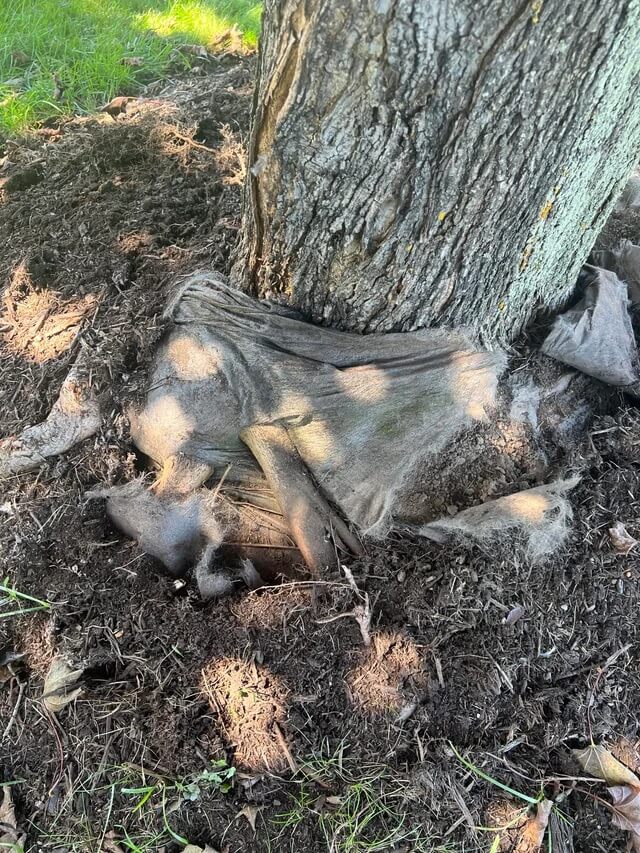A Reddit user tried to save a tree after making an alarming discovery.
In a recent post on the r/Arborists subreddit, a user shared a photo of a tree that had been under duress for over a decade.
"This tree has been mulch volcanoed and wrapped in a tough layer of landscape fabric for who knows how long maybe 15-20 years," the user wrote. "Is this girdling and tree too far damaged or should I continue to try to free it?"

The problem might not be immediately clear, so let's break down those technical terms. According to WeedCUT, girdling is a process by which people can kill trees without having to chop them down. You cut a line all the way around the circumference of the bark and the layer below the bark to starve the roots of nutrients from above the ground.
Volcanoing, or volcano mulching, also inhibits tree growth.
"Volcano mulching is an improper tree care technique where, year after year, mulch is piled against the trunk of a tree," Gregory Jordan of the University of New Hampshire wrote. "Properly planted trees (or naturally grown trees) will develop a characteristic root flare near ground level."
This technique can lead to disease and rot. Unfortunately, numerous other posts on the subreddit have showed the dangers of volcano mulching.
A commenter offered advice on how to mitigate the problem.
"This is heartbreaking," they wrote. "It's hard to see much of what's going on with just this single pic but it's never too late to make the effort to remedy these situations. It's hard work and likely you'll be faced with fragmenting fabric, plastic or whatever the hell else has been embedded here, but absolutely do your best.
"Here is how you can arrange a consult with a local ISA arborist in your area (NOT a 'tree company guy' unless they're ISA certified) or a consulting arborist for an on-site evaluation. A competent arborist should be happy to walk you through how to care for the trees on your property and answer any questions. If you're in the U.S. or Canada, your Extension (or master gardener provincial program) may have a list of local recommended arborists on file. If you're in the U.S., you should also consider searching for arborist associations under your state."
Join our free newsletter for easy tips to save more, waste less, and help yourself while helping the planet.









